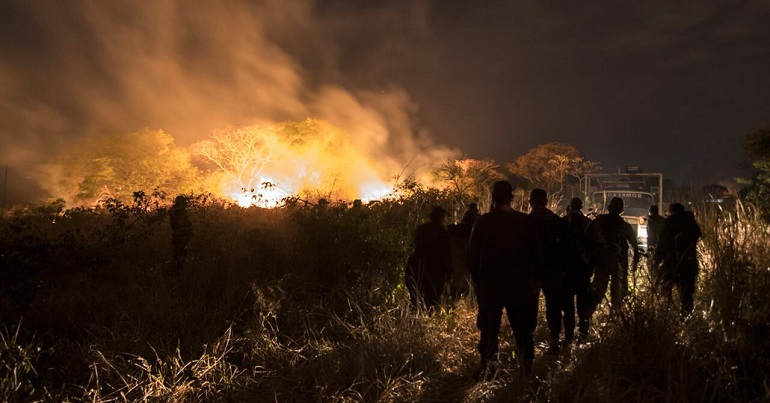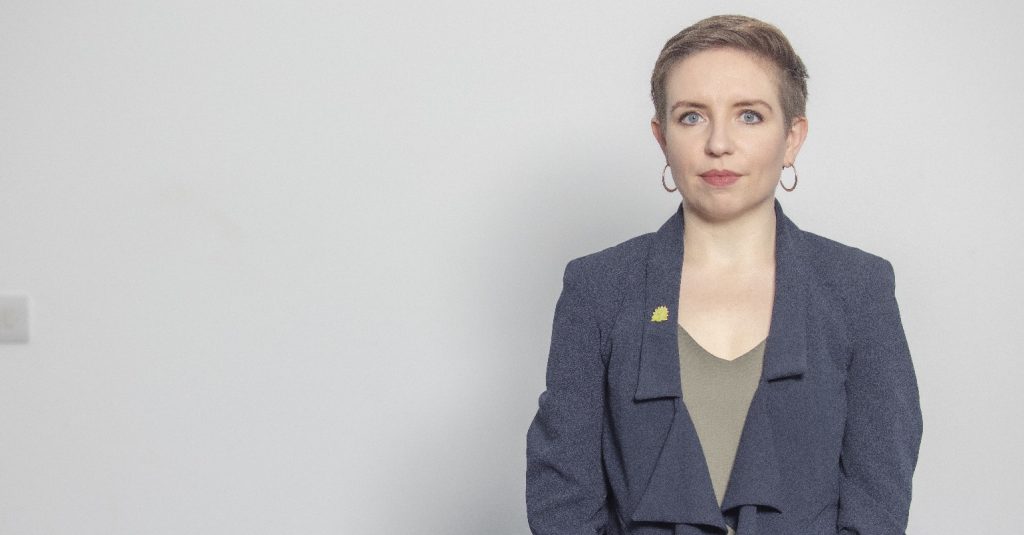How Evo Morales is fuelling the Bolivian forest fires
Devastating fires caused by human activity have been raging in two of the world’s most important forest areas in Bolivia and Brazil over the last couple of weeks; the Chiquitania and the Amazon. The world’s responses to both of these fires, however, has been markedly different.
Jair Bolsonaro’s encouragement for farmers to clear land in the Amazon to make way for agro business, which led to the fires, and his thoroughly inadequate response, have been rightly criticised in the global media and by politicians around the world. Various nations, after an initially subdued global response, have made serious and credible threats to Bolsonaro’s government and he has been forced to take action to tackle the fires which are raging in the Amazon.
The international response to the fires in Bolivia and the role of its leader, Evo Morales, in both facilitating the fires and in his government’s inadequate response, has been more subdued. They received little international coverage until the situation came to the attention of Dr Claire Wordley, who was one of the first people to write about the fires in Bolivia in the Western media. She spoke to Bright Green, saying:
I first became aware of the fires in Bolivia last Monday, when my partner, a Bolivian scientist, came home angry, depressed and alarmed at the spread of the fires and the inadequate response and the silence of the international media.
I started translating some news from Bolivian websites and wrote something from the background work I’d done separately on Morales’ environmental record. I sent it to a few British papers but heard nothing back, and after waiting a few more days and seeing no more coverage, put my piece on Medium, where it got quite widely read and shared.
Morales has been praised and contrasted to Bolsonaro by commentators in the Western media. Aaron Bastani, co-founder of Novara Media, tweeted a video of a 747 supertanker dropping water over Bolivia (wrongly mistaking it for flying over The Amazon), saying:
A supertanker plane dropping water to obstruct the Amazon burning. The person behind it? Bolivia’s socialist leader Evo Morales
Dr Claire Wordley continued:
Writer Aaron Bastani posted a video of the supertanker praising Evo Morales as a socialist leader. I and Bolivian scientists and activists tried to point out the wider story to him, including that Morales’ policies policies have been aggressively neoliberal, and that Bolivian civilians apparently did all the paperwork for the tanker.
Bastani ignored us and reposted the video here with the caption ‘This is the stuff the RAF will do under a Corbyn government. No more wars, no more neoliberals – just imagine’”
Max Blumenthal, editor of The GrayZone project, echoed Mr Bastani’s sentiments, tweeting the same video and saying:
The first images of the supertanker rented by Bolivia’s socialist President Evo Morales to fight the Amazon fires while Brazil’s Bolsonaro blames environmentalists
Praising Morales for his action on the fires is misguided. The blame for the outbreak of the fires and for his government’s inadequate response can be firmly placed at Morales’ door. He has even justified the setting of fires for forest clearance, saying “If small families don’t set fires, what are they going to live on?”
In July 2019, the Bolivian leader passed Supreme Decree 3973, which authorised the clearing of forest land using fires to allow for more agro business in the departments of Beni and Santa Cruz, the worst affected regions by the fire. The passing of this law was the kindling for the fires which have set half of Bolivia ablaze and now burned almost a million hectares of a uniquely biodiverse forest.
Jhanisse Daza, a Bolivian human rights activist who has been working to tell the world about the fires and organise within the country to pressure the Bolivian government into accepting international assistance, spoke to Bright Green and said:
The supreme decree passed on July 9th, 3973, is perhaps the tipping point but it’s not an isolated event. This decree said it was ok to use authorised fires in forest areas to expand the agro-cattle industry and when it passed I remember the government saying it was ‘mission accomplished’.
They were excited to have passed it because it was done in alliance with the private agro cattle industry. It isn’t a coincidence that this year the government of China and government of Bolivia signed an agreement to begin providing beef to China so there’s a big interest in expanding these areas.
Daza posted this image on Twitter showing the extent of the fires. Half of the country is in flames:
#Bolivia: 27 days since fire started, government admits it won't be able to stop it,half a million hectares have been lost and 680 thousand hectares are currently in danger. Countless animals dead.
Below map of current emissions of carbon monoxide.
Half the country is burning. pic.twitter.com/mQOO0eClCY— Jhanisse Vaca Daza (@JhanisseVDaza) August 20, 2019
Morales’ response to the fires has also been wholly inadequate. On the 15th of August, more than two weeks after the fires began to take hold in earnest, just 75 Bolivian fire fighters were tackling the blaze with little support from central government or the army.
According to Daza, the situation is even more dire in the Yacucies region in the east of the country, where her colleagues on the ground have told her that there are just 12 firefighters trying to tackle a blaze covering well over 1000 hectares, and without basic equipment like fire fighting gloves.
It was only on 19th August that Morales realised the local government would not be able to stop the fires and ordered central government assistance for Santa Cruz. However, he stopped short of seeking international assistance at this stage, saying it was not necessary.
It took 27 days after the fires started, and with more than half of Bolivia ablaze, for Morales to finally seek international assistance, signing off on the use of the 747 supertanker (which was organised and funded by private citizens). However, as of August 24, planes sent by the Argentine government to assist in tackling the blaze were still grounded because the Bolivian government had not yet permitted them to operate.
In Bolivia, people have been protesting against the government’s inadequate response to the fires, and calling on Morales to repeal Supreme Decree 3973. Firefighters themselves have been protesting against the government because of their inadequate equipment to tackle the blaze, saying “they don’t even have shoes to stop the fire” and calling for the government to allow more international assistance.

Dr Wordley told Bright Green:
People across Bolivia are fighting fires with bottled water, no breathing masks, and inadequate equipment. People are marching in almost every major Bolivian city right now to tell the government to repeal Supreme Decree 3973 and Law 741, which allow burning. We need to be listening to their voices.
Bolivians in the capital La Paz and in six other cities marched on August 25th demanding the government call for international assistance and repeal Supreme Decree 3973.
Daza called on the International community to help Bolivia, saying:
Our government is refusing help for many reasons, but the reality is we need international help, no matter what our government says. They are unable to provide the resources or the specialist people to effectively tackle the fire because the military people they are sending to put out the fires have absolutely no training in fire fighting and we need people who know what they’re doing.
For example they brought in the super tanker and on the first day it was throwing water in a region of Santa Cruz, and the next day the same area was back on fire because you can’t just drop water from an airplane, you need people on the ground with proper equipment and training to properly tackle the fires, along with air support.”
The hashtags #SOSBolivia and #SOSChiquitania have both been getting some traction on social media, and international news outlets have begun to cover the fires which has helped to force Morales to seek international help and coordinate a more concerted effort to tackle the fires.
However, this is too little too late with half of the country already ablaze and almost a million hectares of forest lost. Morales’ blocking of the Argentine planes and preventing of foreign veterinarians and firefighters to work in the country as of August 25th show that his response still is not good enough.
Bolivia needs the world’s help, but for this to happen the Bolivian government needs to listen to the thousands of Bolivians out on the streets of La Paz and other major cities, and accept they need help before the fires get even worse.
You can follow Jhanisse Daza and her efforts in Bolivia on Twitter, and you can donate here. Please share this news as widely as possible so you can help Jhanisse Daza and her colleagues in Bolivia spread the word about their situation, and put pressure on Evo Morales and his government to accept more international assistance and prevent even more of the country from going up in flames.
Header image credit: Dr Claire Wordley





Leave a Reply